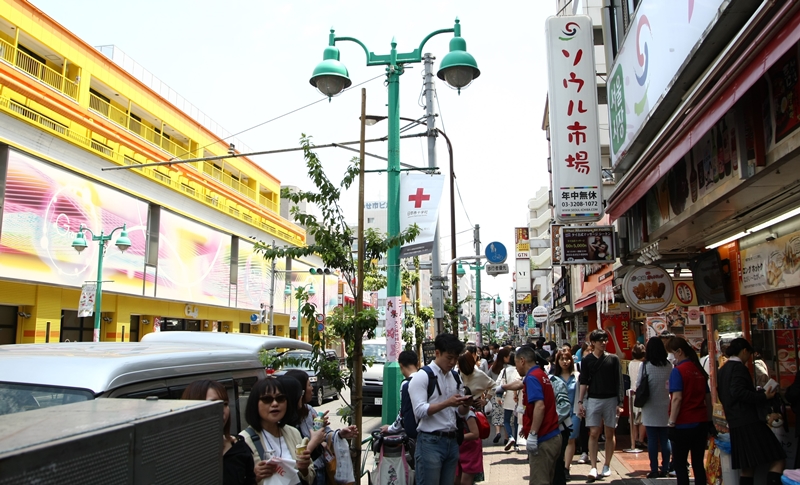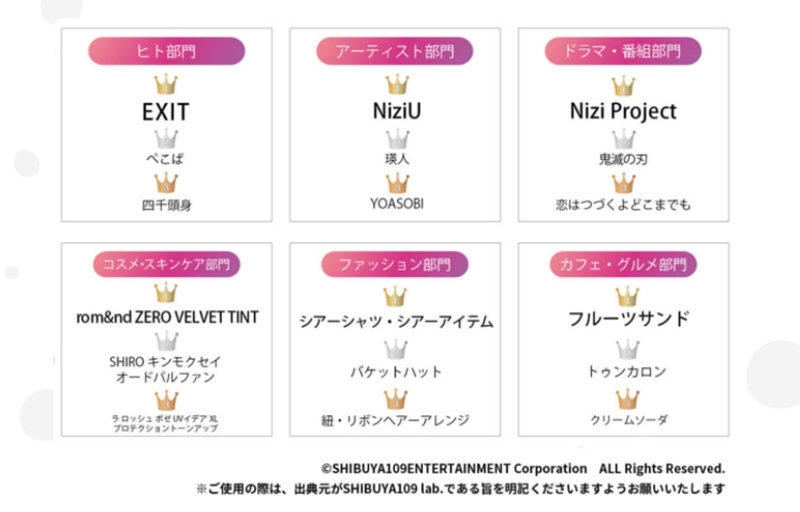
Shin-Okubo, a Koreatown in Tokyo's Shinjuku district, is packed with visitors buying Korean items and eating Korean food. (Yonhap News)
By Lee Kyoung Mi and Lee Jihae
With young Japanese largely prevented from visiting Korea due to the COVID-19 pandemic, a report shows that many of them seek a Korean experience by buying items in Koreatowns in Japan.
The Osaka office of the Korea Trade-Investment Promotion Agency (KOTRA) on Dec. 1 explained in a report what items Japanese visitors to the city's Koreatown like and what the district looks like on weekends when packed with visitors.
The campaign "Go To Travel" in Japan encourages domestic travel by supporting up to half of a tourist's travel expenses, and this program has also raised the number of visitors to the Koreatown.
"The number of visitors declined over a one-year period from summer last year due to Japan's export restrictions on Korea. But so many visitors now make it seem almost as if it's a world with nothing to do with COVID-19," the report said.
The owner of a store for Hallyu-related items was quoted as saying, "People haven't been able to go to Korea for a long time, and their desire to experience Korea even indirectly has led to the current situation."
Korean-made products are also all the rage.
Shibuya109, a famous shopping fashion facility in Japan, surveyed 600 women ages 15-24 on their preferred trends this year. Of the eight categories polled, Korea-related content topped drama and broadcasting, cosmetics and skincare, cafe and food, and home cafe.

Shibuya109, a famous fashion shopping facility in Japan, recently polled 600 women ages 15-24 on their trend preferences this year. Among the study's eight categories, drama and broadcasting, cosmetics and skincare, cafe and food, and home cafe were led by Korean items. (Shibuya109 lab)
These results showed heightened Japanese interest in Korean food sparked by social media.
"Hallyu is already an inextricable and close element in the lives of many young women," the KOTRA report said. "Social media is a valuable source of information for consumers, so it will be effective if corporations get a good grasp of social media for use as a crucial means of boosting sales."
km137426@korea.kr
Most popular
- Slew of festivals, events scheduled in downtown Seoul in May
- Korea.net welcomes 2025 K-influencers, Honorary Reporters
- 2025 Honorary Reporter class pledges to spread 'real Korea' worldwide
- US urged to exempt tariffs on Korea in first '2+2' trade talks
- Korean culture festival in Cuba marks 1st year of bilateral ties
